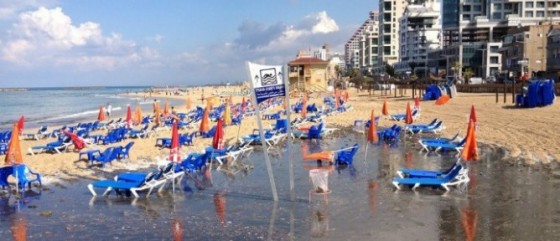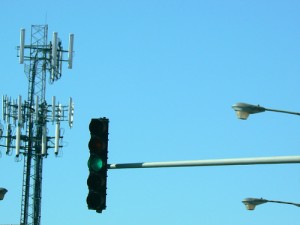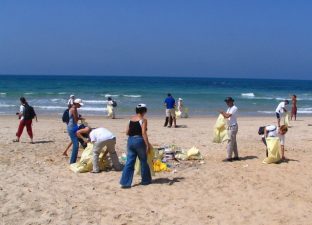
Thanks to a network of Israeli divers, and the Health Ministry, Israeli non-profit environmental association Zalul is now keeping the public up to date on the condition of the country’s waterways. By commissioning road-navigation app developer Waze to add a water-pollution application to its popular smart phone service, the founders of Zalul (which means clear in Hebrew) hope to promote safer swimming in addition to pressure on polluters.
While Israel is primarily an arid country, it boasts an arterial network of rivers, lakes and streams. Major rivers such as the Alexander, Yarkon, Yarmuk and Kishon are unfit for swimming, says Maya Jacobs, executive director of Zalul.
She partnered with Waze to bring attention to the gravity of the problem during Sukkot, an autumn Jewish holiday that originally was a harvest and pilgrimage festival. Today the Israeli public celebrates much of the weeklong holiday by hiking, swimming and camping. Jacobs (pictured above) saw it as a perfect time to launch Zalul’s pollution-alert feature.
“I was driving with a friend of mine using Waze when all these pop-ups starting coming up. And I thought: Why don’t we use them to show people where the rivers are polluted?” she tells me in the story I wrote for ISRAEL21c.
When a logged-in user comes within about 12 miles of a waterway, the application will identify it, inform the user of its health status and identify polluters by way of a pop-up alert. During Sukkot, the organization sent users 120,000 alerts – including one warning of a sewage overflow in Tel Aviv that flooded a popular beach following the season’s first rain. See image of the sewage on the popular beach below.
Until now, the Israeli public has relied on news reports or signs posted on public beaches. A real-time alert system would not only be good for public health and safety, Jacobs reasoned; it would also force polluters to face the consequences of growing public awareness.
Certainly other regions, like Florida’s popular Gulf Coast, could use such an application as well, especially after the 2010 oil spill.
As far as she knows, there is no other public service like Zalul anywhere in the world, and Jacobs very much hopes to continue updating it along with Waze or as a standalone application, if interested parties can help support the cause. For now, Zalul must pay to remain part of Waze.
At the same time, Jacobs has a development team working on a social application for surfers, sailors, swimmers, port authorities, fishermen — everyone who cares about the Mediterranean Sea and Israel’s water resources.
Zalul will use this interested public to be the “eyes and ears outside,” taking the collected information to the local authorities in the hope of influencing regional water policy. “We call it a Forum for Defenders of the Sea. In the first stage it will be in Hebrew and then in English,” says Jacobs.
Zalul’s three main targets are mitigating harm from oil and gas drilling off the Mediterranean Coast; preventing Tel Aviv’s raw sewage from going straight to the sea; and putting pressure on polluters.
Jacobs wants the government to step up to the plate to avert a future catastrophe. Unlike other parts of the Med, Israel’s strip of sea is not fed by an active body of flowing water. If there were an oil spill, Israel would have to live with the consequences for a very long time, she tells ISRAEL21c.
But not all the water news from Israel is bad. Parts of the major rivers, including the Alexander and the Kishon, are being rehabilitated. And while Israel’s Lower Jordan River is reduced to a trickle and is not safe for swimmers, the Upper Jordan is fine for swimming, says Jacobs. Happily, the majority of Israel’s streams in the north remain clean, fed by fresh mountain-water runoff.




